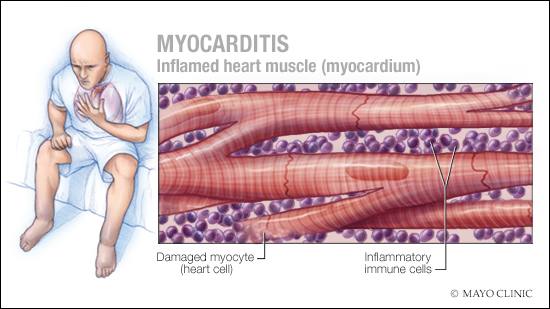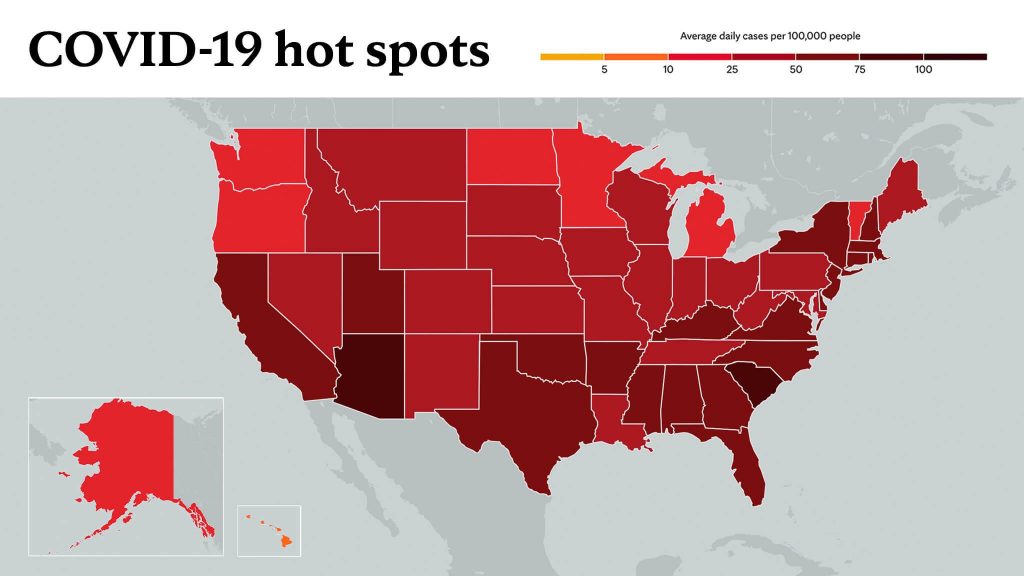
The most commonly reported long-term effects of COVID-19 include shortness of breath, fatigue and joint pain. More serious long-term complications, such as myocarditis, or inflammation of the heart muscle, appear to be uncommon following COVID-19.
"COVID-19 doesn't usually affect the heart," says Dr. Leslie Cooper, a Mayo Clinic cardiologist. "Older hospitalized patients who have severe systemic illness can also have signs of cardiac damage. Sometimes these are asymptomatic, with only an increase in blood markers of injury like troponin, and sometimes patient may have symptoms with chest pain, trouble breathing or sometimes arrhythmias."
Watch: Dr. Leslie Cooper talks heart myocarditis and COVID-19
Journalist: Sound bites are available in the downloads at the bottom of the post. Please "Courtesy: Leslie Cooper, M.D. / Cardiology / Mayo Clinic."
Myocarditis, usually caused by a virus, can affect your heart muscle and your heart's electrical system, reducing your heart's ability to pump, and cause rapid or abnormal heart rhythms, or arrhythmias. In many cases, myocarditis improves on its own or with treatment, leading to a complete recovery. In severe cases, it can permanently damage your heart muscle. In COVID-19 infections, myocarditis is uncommon and cardiac injury can be due to other causes, such as blood clots in the small heart vessels or edema.
As to the seriousness and long-term effects of COVID-19, Dr. Cooper says it's too early to say. "And that's because this disease has only existed for around one year. We need large patient cohorts to be followed for longer periods of time to know whether COVID-19 increases cardiac risks, such as arrhythmias. Patients who initially have a severe COVID-19 illness and recover after hospitalization might have a greater long-term risk of cardiovascular symptoms. We're looking forward to getting the answers from future studies."
Most people who have COVID-19 infection experience mild symptoms and do not have any cardiac issues.
"Most people do not have myocarditis. If you're one of the people who has imaging or clinical evidence of myocardial injury, it's important to be cared for by a medical professional team that understands COVID-19. The overall likelihood of recovery is quite good in most people," says Dr. Cooper.
Prevention of being infected with COVID-19 or spreading the virus remains a top priority.
"Everyone, regardless of risk should be practicing good hand hygiene and social distancing, and wearing cloth masks where appropriate, because even if you're healthy, you can still transmit the COVID-19 virus," says Dr. Cooper.
For the safety of its patients, staff and visitors, Mayo Clinic has strict masking policies in place. Anyone shown without a mask was either recorded prior to COVID-19 or recorded in a nonpatient care area where social distancing and other safety protocols were followed.
Information in this post was accurate at the time of its posting. Due to the fluid nature of the COVID-19 pandemic, scientific understanding, along with guidelines and recommendations, may have changed since the original publication date.
For more information and all your COVID-19 coverage, go to the Mayo Clinic News Network and mayoclinic.org.
Learn more about: tracking COVID-19 and COVID-19 trends.








